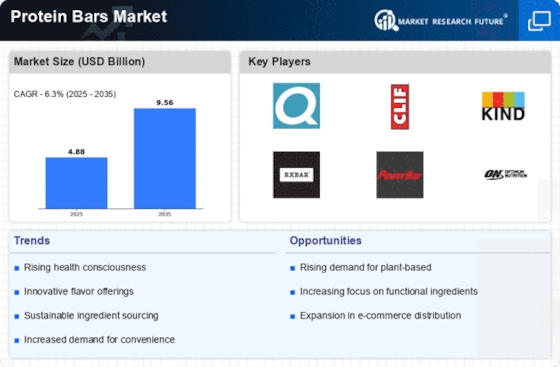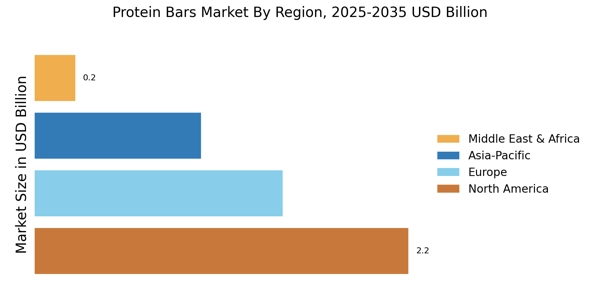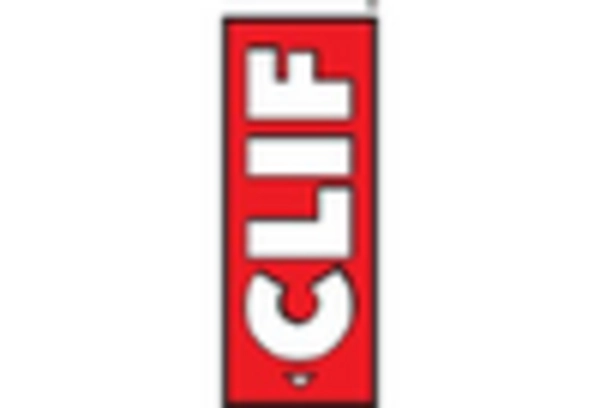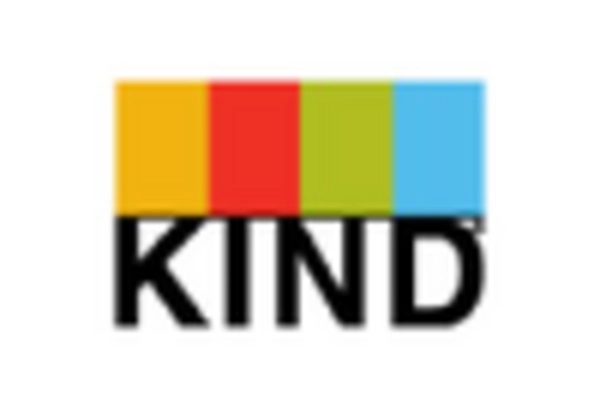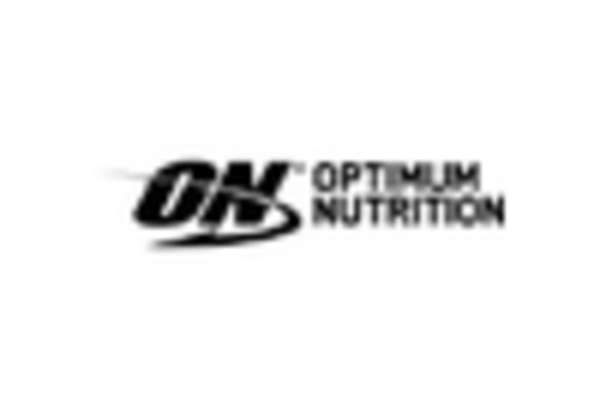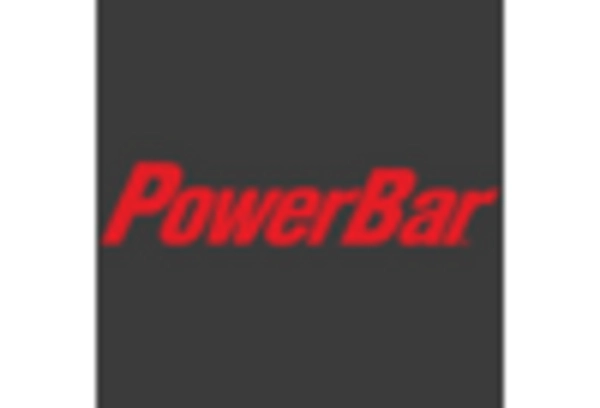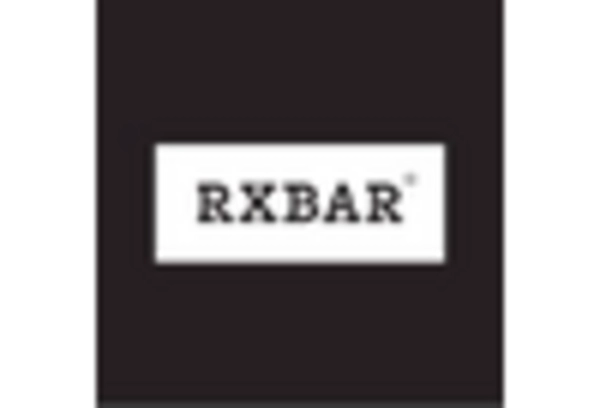Innovative Product Development
Innovation plays a crucial role in the Protein Bars Market, as brands continuously strive to differentiate their offerings. The introduction of unique flavors, textures, and functional ingredients has become a key strategy for capturing consumer interest. Recent market analysis suggests that products featuring superfoods, such as chia seeds and quinoa, are gaining traction among health-conscious consumers. Furthermore, the Protein Bars Market is witnessing an increase in the development of bars that cater to specific dietary needs, such as high-protein, low-sugar, or meal replacement options. This innovative approach not only enhances consumer choice but also fosters brand loyalty, as customers are more likely to return to brands that consistently deliver novel and appealing products.
E-commerce Growth and Online Retailing
The Protein Bars Market is experiencing a transformative shift due to the rapid growth of e-commerce and online retailing. As consumers increasingly turn to digital platforms for their shopping needs, protein bars are becoming more accessible than ever. Data indicates that online sales of protein bars have surged, with e-commerce channels accounting for a significant portion of total sales. This trend is particularly appealing to younger consumers who prefer the convenience of online shopping. The Protein Bars Market is thus adapting to this shift by enhancing online presence and optimizing supply chains to meet the demands of digital consumers. This evolution not only broadens market reach but also allows brands to engage with customers through targeted marketing strategies.
Increased Focus on Health and Wellness
The Protein Bars Market is significantly influenced by the growing emphasis on health and wellness among consumers. As awareness of nutrition and fitness rises, individuals are increasingly incorporating protein bars into their diets as a source of essential nutrients. This trend is supported by data indicating that nearly 60% of consumers actively seek protein-rich snacks to enhance their dietary intake. The Protein Bars Market is responding by diversifying product offerings to include options that cater to various dietary restrictions, such as gluten-free and vegan formulations. This focus on health not only drives sales but also encourages brands to innovate and improve the nutritional profiles of their products, thereby attracting a broader consumer base.
Rising Demand for Convenient Nutrition
The Protein Bars Market experiences a notable surge in demand for convenient nutrition solutions. As lifestyles become increasingly hectic, consumers seek quick and portable food options that align with their dietary preferences. This trend is particularly pronounced among busy professionals and fitness enthusiasts who prioritize nutrition without sacrificing time. According to recent data, the protein bar segment is projected to grow at a compound annual growth rate of approximately 8% over the next five years. This growth reflects a broader shift towards on-the-go meal replacements and snacks that offer both convenience and nutritional value. The Protein Bars Market is thus adapting to meet these evolving consumer needs, emphasizing the importance of accessibility and ease of consumption.
Rising Popularity of Fitness and Sports Nutrition
The Protein Bars Market is significantly impacted by the increasing popularity of fitness and sports nutrition. As more individuals engage in regular physical activity, the demand for protein-rich snacks that support muscle recovery and overall performance is on the rise. Recent statistics reveal that the sports nutrition segment, which includes protein bars, is expected to grow substantially, driven by a surge in gym memberships and fitness programs. This trend indicates a shift in consumer behavior towards proactive health management, where protein bars serve as a convenient solution for post-workout nutrition. The Protein Bars Market is thus positioned to capitalize on this trend by offering products that cater specifically to athletes and fitness enthusiasts, further solidifying its role in the broader health and wellness landscape.


